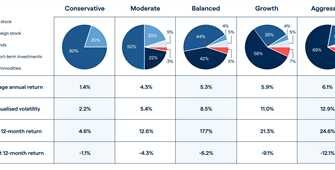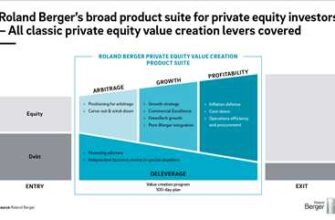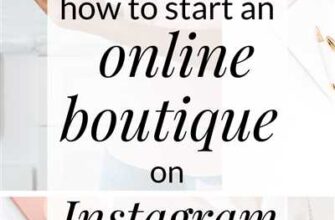
When it comes to starting a business in the ecommerce industry, many entrepreneurs have concerns about competing with well-established brands. They often face the challenge of how to differentiate their product from the competition and carve out a profitable niche for themselves. This is where private labeling comes into the picture.
Private label refers to the process of creating a brand-name product that is sold under another company’s name. In this case, the product is manufactured by one company but the brand or label is owned and controlled by another. This strategy offers a number of benefits for businesses, such as the ability to incorporate their own personal touch into the product and create a more personalized experience for their customers.
One of the biggest advantages of private labeling is that it allows businesses to stand out from the crowd and avoid fighting with generic brands. By creating their own label, they can position themselves as leaders in their respective categories and gain a competitive edge in the market. Customers are more likely to trust and buy from a brand they recognize and feel a personal connection to.
In addition, private labeling gives businesses more control over the product and its marketing. They can choose to focus on specific niches or target a broader audience, depending on their goals and market research. They have the freedom to tailor the product to meet their customers’ needs and incorporate any additional features or benefits that they see fit.
Private labeling is especially popular in the health and wellness industry where customers are becoming more careful about what they put in their bodies. By offering their own brand of health products, businesses can build trust with consumers who are looking for a more personalized and trustworthy option. They can also capitalize on the growing demand for natural and organic products and create a profitable business in this fast-growing market.
So, if you’re starting an online business and you’re wondering how to create a private label, there are a few key steps you need to take. First, you need to find a reliable manufacturer who can produce high-quality products for you. Once you have that in hand, you’ll need to work on designing your label and packaging, making sure it reflects your brand and speaks to your target audience.
Next, you need to devise a marketing strategy that will help you promote your private label and reach your target market. This could involve leveraging social media platforms, running online ads, or partnering with influencers in your industry. You want to create a buzz around your brand and build a loyal customer base that will keep coming back for more.
Remember, this is a long-term game. Building a successful private label brand takes time and effort, but with the right strategy and determination, you can win a spot in the market. So, don’t be discouraged if you face challenges along the way. Stay focused on your vision, listen to your customers, and continuously improve your products and services.
In conclusion, private labeling can be a profitable venture for businesses in the ecommerce industry. It offers them the opportunity to create their own brand and differentiate themselves from their competitors. By incorporating their own personal touch and focusing on specific niches or customer needs, businesses can build a loyal customer base and establish themselves as leaders in their market.
- All about private labels Starting a profitable business in India
- The Rise of Private Labels
- The Process of Creating Private Labels
- The Benefits of Private Labels in India
- In Conclusion
- Brands Versus Private Labels Fighting to Win
- The Benefits of Private Labeling
- Leadership in the Private Labeling Spot
- Private Label Benefits
- 1. Profitable Business Model
- 2. Customized Products
- 3. Brand Recognition
- 4. Higher Control and Flexibility
- 5. Competitive Advantage
- Private Label Categories
- Video:
- How to Private Label From Start to Finish | Amazon FBA 2022
All about private labels Starting a profitable business in India
Starting a profitable business in India can be a challenging task, especially in a competitive market. However, one strategy that many entrepreneurs are adopting is creating private labels. In this article, we will explore the benefits of private label businesses and how you can incorporate them into your own business.
The Rise of Private Labels
In India, private label businesses have been on the rise in recent years. With the growth of online shopping and the increasing demand for quality products at affordable prices, private labels have become a popular choice for both consumers and entrepreneurs. These labels offer a unique proposition by providing products that are equivalent or even better in quality compared to brand-name products, but at a lower price point.
The advantages of private labels in India are quite substantial. Firstly, as an entrepreneur, you can have full control over the product development process. From choosing the ingredients or materials to designing the packaging, you have the freedom to create a product that meets the specific needs and preferences of your target market.
Secondly, private labels allow you to differentiate yourself from your competitors. In a market saturated with generic products, having your own brand can help you stand out and build customer loyalty. By creating a unique brand identity and marketing strategy, you can attract and retain customers who are looking for something different.
The Process of Creating Private Labels
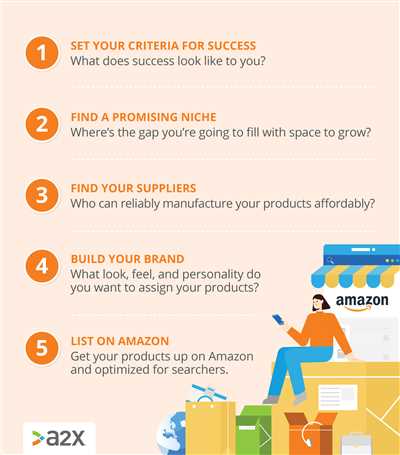
Creating private labels in India is a multi-step process. Firstly, you need to identify the product categories that you want to focus on. This can be anything from frozen food to health and wellness products. It’s important to choose a category that aligns with your passions and expertise, as this will help you succeed in the long run.
Once you have decided on the product categories, you need to find reliable suppliers or manufacturers who can produce high-quality products at a competitive price. Conduct thorough research and reach out to potential suppliers to compare their offerings and negotiate favorable terms.
Incorporating the right branding and labeling strategies is also crucial for the success of your private label business. Invest in creating a visually appealing brand logo and packaging that reflects the values and quality of your products. Additionally, ensure that your labeling meets all the regulatory requirements and provides clear and accurate information to consumers.
The Benefits of Private Labels in India
Private labels offer several benefits that can help you win in the Indian market. Firstly, they provide higher profit margins compared to selling generic products. Since you have control over the production and marketing, you can price your products competitively while still making a good profit.
Moreover, private labels allow you to build a loyal customer base. When customers associate your brand with high-quality products, they are more likely to repurchase and recommend them to others. This can lead to a steady stream of repeat business and positive word-of-mouth marketing.
Lastly, private labels give you the opportunity to become industry leaders. By consistently delivering innovative and high-quality products, you can position yourself as a trusted brand in your niche. This can open doors for collaborations, partnerships, and even expansion into other market segments.
In Conclusion
Starting a profitable business in India may seem challenging, but incorporating private labels into your strategy can make all the difference. By leveraging the benefits of private labels, such as higher profit margins, customer loyalty, and industry leadership, you can create a successful and sustainable business in the Indian market.
Brands Versus Private Labels Fighting to Win
When it comes to starting a profitable business in the ecommerce world, there’s an ongoing battle between brands and private labels. Both have their own advantages and disadvantages, and businesses need to carefully consider which option is best for them.
Brand-name products have long been a staple in the retail industry. These well-known brands come with a certain level of trust and recognition from consumers. They often have strong marketing strategies and a loyal customer base. However, brand-name products can also come with a higher price tag, as consumers are often willing to pay more for these trusted names.
On the other hand, private label products are typically produced by a manufacturer and sold under a retailer’s own brand. They are often seen in categories such as grocery, health and personal care, and frozen foods. Private labels can offer many benefits for businesses, including higher profit margins and the ability to tailor products to meet specific customer needs.
For example, if you’re starting an online business in India, you may incorporate private labels into your product offerings. By creating your own private label, you have the opportunity to differentiate yourself from competitors and potentially offer lower prices to customers. This can be especially advantageous in a price-sensitive market like India.
In recent years, private labels have been gaining more recognition and respect in the retail industry. Consumers are becoming more open to trying new and generic products, especially if they offer similar quality to brand-name products at a lower price point. As a result, private labels are no longer seen as “generic” or subpar alternatives.
The Benefits of Private Labeling
There are several benefits to incorporating private labels into your business:
- Higher profit margins: Private labels often offer higher profit margins compared to brand-name products. This is because you have more control over the production and pricing of the product.
- Customization: With private labels, you have the ability to customize and tailor products to meet specific customer needs. This can help you stand out in a crowded market and attract a loyal customer base.
- Brand loyalty: Private labels can help you build brand loyalty by offering unique and innovative products that customers can only find at your store. This can lead to repeat purchases and an increased customer lifetime value.
Leadership in the Private Labeling Spot
Many online businesses are now taking advantage of the profitable opportunities that private labeling offers. By creating their own private label products, they can establish themselves as leaders in their respective industries.
However, it’s important to note that private labeling is not without its challenges. It requires careful planning, sourcing, and marketing to ensure success. It also requires businesses to stay on top of industry trends and consumer preferences. But for those who are willing to put in the effort, the rewards can be substantial.
So whether you choose to go with a well-established brand or create your own private label, the key is to understand the unique advantages and disadvantages of each option. By carefully considering all factors, you can make an informed decision and position your business for success in the competitive ecommerce landscape.
Private Label Benefits
When starting a business, especially in the ecommerce or retail sector, incorporating private labels into your product offerings can have numerous benefits. Private labeling allows businesses to create their own brands and stand out from competitors, giving them a unique spot in the market.
1. Profitable Business Model
Private labels are often more profitable compared to selling generic or brand-name products. By eliminating the need for expensive marketing campaigns and excessive product development costs, businesses can achieve higher profit margins.
2. Customized Products
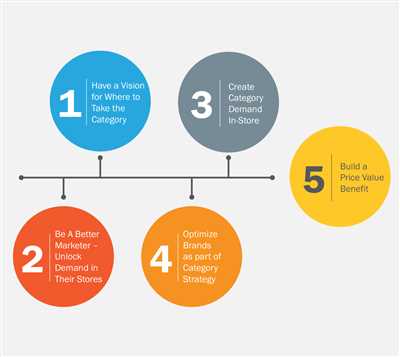
Private labeling provides businesses with the opportunity to create personalized products that cater specifically to their target audience’s needs. This customization can include anything from the product itself to the packaging and labeling, allowing businesses to differentiate themselves from competitors.
Furthermore, businesses have the freedom to choose the quality of their products, making it easier to offer high-quality items within their niche.
3. Brand Recognition
Private labeling helps businesses establish their brand identity and build brand recognition. By consistently delivering high-quality products under their own label, businesses can earn the trust and loyalty of their customers.
Additionally, brands can leverage private labeling to position themselves as industry leaders and experts. This can be achieved through thought leadership, providing educational content, and showcasing expertise in their respective categories.
4. Higher Control and Flexibility
Private labeling provides businesses with greater control over their product offerings. They have the authority to make decisions about every aspect of the product, from its ingredients or materials to its pricing and distribution.
This flexibility allows businesses to adapt quickly to market trends, respond to customer feedback, and align their product offerings with their brand’s values and mission.
5. Competitive Advantage
Private labeling enables businesses to differentiate themselves from competitors in a crowded marketplace. Instead of fighting for shelf space with similar products, businesses can create their own spot by offering unique private label products.
By offering products that are exclusively available under their label, businesses can build customer loyalty and make it harder for competitors to replicate their offerings.
Take the health and wellness industry, for example. Many businesses are creating private label products such as supplements, organic foods, and personal care items. By doing so, they are able to leverage the growing consumer trend towards natural and personalized products.
In conclusion, private labeling offers numerous benefits for businesses. From higher profitability to brand recognition and competitive advantage, incorporating private labels into your product lineup can be a sweet spot for success in today’s online marketplace.
Private Label Categories
When it comes to creating your own private label products, the options are endless. From health and beauty care items to frozen foods, there is a category for just about any product you can think of. Here are some of the most popular private label categories that have been proven to be profitable for businesses:
1. Health and Beauty: This category includes a wide range of products such as skincare, haircare, makeup, and personal care items. With the increasing demand for natural and organic products, creating your own private label health and beauty line can be a sweet spot for your business.
2. Food and Beverages: From gourmet spices and sauces to beverages and snacks, the food and beverage category is a great option for private label products. Whether you’re starting an ecommerce business or opening a brick-and-mortar store, there is a huge market for high-quality, private-label food and beverages.
3. Home Goods: This category includes a variety of products such as home decor items, bedding, furniture, kitchenware, and more. The demand for stylish, affordable, and unique home goods is on the rise, making it a profitable space for private label brands.
4. Apparel and Accessories: From clothing and shoes to accessories like bags, belts, and jewelry, the apparel and accessories category offers endless possibilities for private label products. Whether you want to create a brand-name clothing line or simply incorporate your own personalized labels on generic products, this category has a lot of potential.
5. Pet Supplies: If you’re an animal lover, the pet supplies category might be a good fit for you. People love their pets and are always looking for high-quality products to keep them happy and healthy. From pet food and toys to grooming supplies and accessories, there are plenty of opportunities to create your own private label pet products.
Of course, these are just a few examples of private label categories. The key is to find a niche that aligns with your passions and interests. By focusing on a specific category, you can stand out from the competition and carve a profitable spot for your business in the market.
When starting your own private label business, it’s important to have a clear understanding of your target audience and their needs. Conduct market research, analyze the competition, and develop a solid marketing strategy to ensure the success of your private label products.

